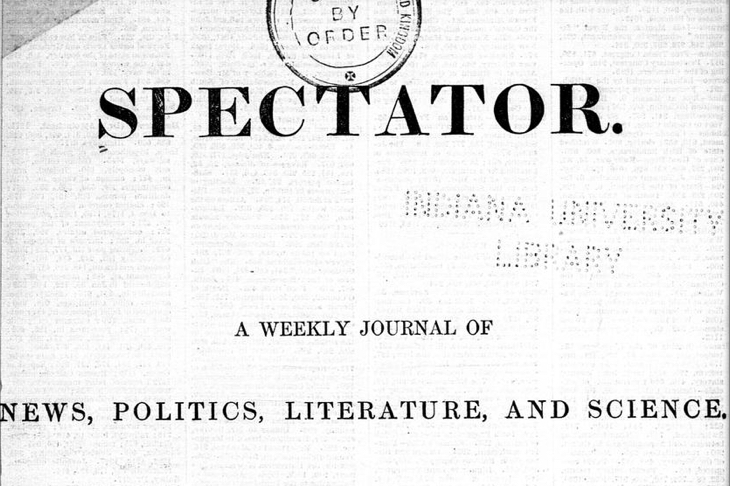2018 will doubtless be a stiff test for the UK – but there’s nothing new in that. When The Spectator ushered in 1847, for instance, its founder and editor R.S. Rintoul (1787-1858) used that year’s opening column to outline the looming challenges and reaffirm the country’s urgent need of strong and capable leadership:
The New Year opens for England with heavy clouds in the sky, but with no sunless horizon. Never did the country enter upon a year with more work to be done. Ireland alone presents a task without precedent: England has there to reorganize an old country… The progress of the new Free-trade policy has to be looked after. The public law of Europe is unsettled, and an eye must be kept on that. But with all this Herculean amount of work, the country never had better means of performance. The very urgency and momentous importance of the tasks compel earnest zeal. The decay of party-spirit releases the ablest man from smaller services to cooperate in serving the largest interests of the country. For the time, political eminence, the success of political ambition, must depend on real ability and diligence in labouring for the public good. The man of the best measures will command the chief post.
These words came in the wake of 1846, a year of real upheaval. The troubles of the Irish – and Highland – Potato Famine had worsened severely, and the Chartist movement was fuelling and funnelling the discontent of the working class. Despite strong opposition from his own party, the Conservative Prime Minister Robert Peel at last repealed the Corn Laws, that unhappy knot of protectionist measures to prop up the artificially high prices of the Napoleonic Wars. This move – cheered by the radical and reformist Spectator – split the Tories down the middle, and led a decade later to the Liberal Party’s formation out of the Whigs and Peelite Conservatives. In the wake of the Corn Laws’ repeal – a heavy blow for the land-owning establishment – the country was faced with a dilemma: to embrace free trade with the world, or to cling to the closed colonial ties of the past. The Tory squirearchy worried that cheap commodities and labour would flood British shores; the Peelites and Whigs, along with The Spectator, saw that the British economy could advance in step with the wider world, however Europe decided to (r)evolve.
At any rate, a politician who could put national interest ahead of party spirit was universally recognised to be essential. The country’s gamble paid off: under Lord John Russell’s ministry (1846-52), the UK avoided the full-scale continental riots of 1848 and played host to the world in spectacular fashion for the Great Exhibition of 1851. Perhaps, for all the froth and excitement, 2018 isn’t the harbinger of national disaster after all.






Comments